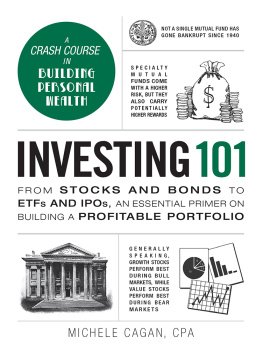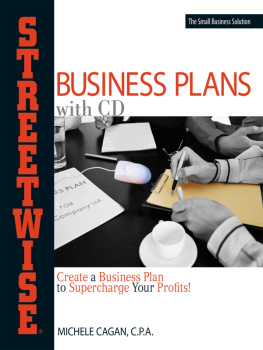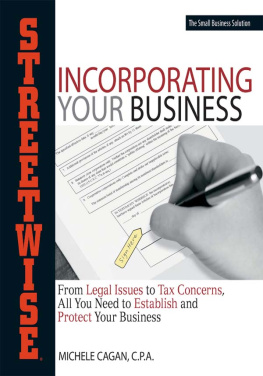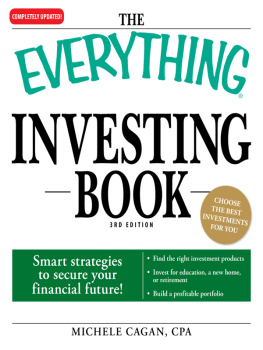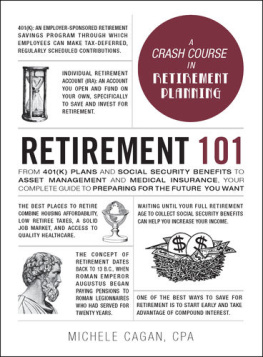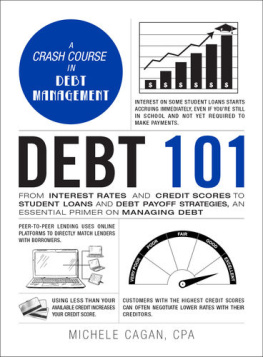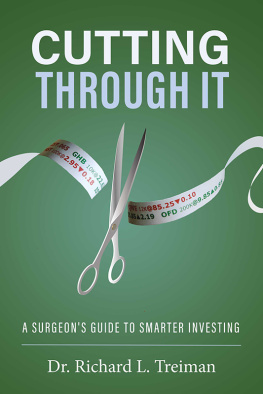Contents
Guide
INVESTING
FROM STOCKS AND BONDS TO ETFs AND IPOs, AN ESSENTIAL PRIMER ON BUILDING A PROFITABLE PORTFOLIO
MICHELE CAGAN, CPA

Avon, Massachusetts
CONTENTS
INTRODUCTION
When you hear the word investing, you probably think first of stocks, bonds, or mutual funds. These are certainly among the most common forms that investments take, but theres more to investing than that.
Investing is about getting your money to make more money. Thats the simplest definition of it. And there are all kinds of ways to do that. They include:
- Stocks
- Bonds
- Mutual funds
- Precious metals
- Exchange-traded funds
- Real estate
- Commodities
- Currency trading
In this book, youll learn about all these things and more. Well examine different investing strategies and get advice from some famous investors such as the Nebraska genius Warren Buffett and billionaire Peter Lynch. Well unlock the mysteries behind those terms you hear sometimes on television or see online: short selling, penny stocks, and economic indicators. Youll learn about the various exchanges such as the New York Stock Exchange and the NASDAQ, as well as institutions such as the Federal Reserve and the Securities and Exchange Commission and how they impact investing choices.
Youll get advice on investing for education and for retirement. Youll learn how to evaluate your risk tolerance. And youll learn some basics from the best investors out there.
Investing is a way of helping you reach your goals, whether those are paying for your education or that of your children; traveling and having new and exciting experiences; or financing a secure retirement. By investing wisely and well, you can expand your savings and make your financial dreams come true. Theres an exciting world filled with money-making opportunities out there, and its waiting for you to take advantage of it.
Welcome to Investing 101.
CHAPTER 1
BASIC ECONOMICS
Investing is about making your money grow. That cant happen unless the securities you invest in grow and pay out earnings. And that is directly tied in to the health of the economy.
The most basic premise of the economy is this: If consumers spend money, the economy can grow; if they dont, it cant. When the economy is sluggish, consumer spending lags, overall corporate growth stagnates, and investors see poor returns. When the economy is booming, people spend money, corporations prosper, and investments grow. In fact, consumer spending makes up most of our gross domestic product (GDP), and that keeps the economy flowing.
Understanding how the economy works, the cycles it goes through, and the impact changes have on the markets can help make you a more successful investor. In fact, investors who pay attention to the economy can be more successful because they can take advantage of impending changes. While everyone else is focused on whats happening right now, economically savvy investors can focus on whats comingand profitable investing is all about future growth.
BUYING AND SELLING
The Lifeblood of the Economy
Its certainly the case that the economy today is a very complicated, fast-moving mechanism. How could it be otherwise? We live in a world inhabited by nearly seven and a half billion people who are engaged in a never-ending interaction with one another. Some are buying; some are selling; some are manufacturing; some are consuming. Economics as a system allocates the things we need to live.
Broadly speaking, if youre going to get involved in investing your money, you dont need to know a lot about how the economy works or the finer points of its more obscure corners. You do, however, need to understand some basic things about it.
The intelligent investor is a realist who sells to optimists and buys from pessimists.
Jason Zweig
Value and Price
Humans buy and sell things because those things have value. This value is partly what you use them for (for instance, you use food to survive, you use a car for transportation, and you use movie tickets for entertainment) and partly the monetary value that we assign to them (price).
Value isnt constant, though. The value of some things changes quickly. For example, you probably have noticed that the price of gasoline isnt nearly as high as it was several years ago. Thats partly because humans are generally using less gasoline for driving our cars. This means theres a lower demand for gasoline, and the price, correspondingly, drops. Its also because many oil-producing countries have stepped up their production, which means theres overproduction, causing the price to drop. Gasoline prices fluctuate depending on demand and supply. If supply increases, prices fall. If demand increases, prices rise.
Here are some other basic concepts you need to keep in mind.
Income
Income is money you receive from different sourcesyour job, gifts, inheritances, investmentsto buy what you need. Knowing your income is important, since this allows you to live within your means and not spend more than you have coming in. Economists consider various kinds of income, including national income, per capita income (that is, the average income a person has), and disposable income (the amount of money you and your family can spend after you pay your taxes).
Big changes in your life usually affect your income. One of the largest will come when you retire from your job (or jobs). At that point, youll lose a major source of your income, and youll need to replace all or some of it. Social Security will help, but this is also where your investments can play a key role in letting you maintain your lifestyle.
Consumption
This is what you and your family consume; that is, its how much you spend on goods and services. Again, this is a very important thing for you to keep track of. If your consumption is going up but your income is remaining the same or declining, youve got a problem. On the other hand, if your consumption holds steady, more or less, and is in line with your income, youre sitting pretty.
Personal Consumption Expenditure
Economists track personal consumption expenditures (PCE). The Bureau of Economic Analysis (www.bea.gov) monitors and publishes PCE reports regularly. You can also find information at the Bureau of Labor Statistics (www.bls.gov).
Saving and Investment
Finally, we come to those things that families should do and dont: save and invest.
Americans used to be quite good at savingduring the 1960s, the average American saved 610 percent of her or his income. That declined in the 1990s, and today it hovers around zero. Obviously its not in our interest to live paycheck to paycheck, but too many of us struggle to find ways to save and to increase those savings. This is the importance of investments. Its not enough to save part of your income; youve got to get that money working for you.
INTEREST RATES
Borrowing and Lending
Interest rates are the prices borrowers of money pay to the lenders. From stocks to bonds to real estate, every investment is somehow affected by interest rates, albeit to a different extent. To understand that impact, you first have to understand how interest rates work. For most of us, interest is just something we earn on our savings accounts, or (more often) more money we have to pay to credit card companies. For some, its the mysterious number connected with mortgage payments. And thats where it ends for us; thats the direct impact of interest rates on our lives.

